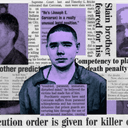
The American Bar Association has urged the Nevada Supreme Court to prohibit the use of the death penalty against people who are severely mentally ill. In a friend-of-the-court brief filed October 3, 2019 in the case of death-row prisoner Siaosi Vanisi, the ABA argued that imposing the death penalty on people with severe mental illness serves no legitimate penological purpose and asked the court to “categorically prohibit the execution of individuals who were suffering from severe mental illness at the time of their crimes.”
Vanisi was convicted and sentenced to death in 1999. Prior to trial, his lawyer raised concerns about Vanisi’s mental health, advising the court that that the prosecution and defense had “received various reports regarding some bizarre behavior” by Vanisi, “[f]rom talking gibberish to washing himself in his own urine to dancing naked.” The court ordered a competency evaluation but ruled that Vanisi was competent to stand trial.
After the first trial ended in a mistrial, Vanisi continued to engage in bizarre behavior and refused to cooperate with counsel. He was convicted and sentenced to death at his second trial. Two mental health experts have since diagnosed Vanisi with Schizoaffective Disorder “that greatly impairs his cognitive, emotional and behavioural control.” His current lawyers report that his severe mental illness has continued to cause difficulties in their attempts to defend him on appeal.
The ABA amicus curiae brief argues that executing people with severe mental illness serves the goals of neither retribution nor deterrence, that people with severe mental illness are more vulnerable to false confession and less able to assist counsel with their case, and that existing legal protections do not adequately address these problems. It says the same reasons the U.S. Supreme Court cited for exempting people with intellectual disabilities from execution apply equally to persons with severe mental illness and that “[t]here is no principled basis to treat individuals suffering from severe mental illness differently.”
The ABA issued a white paper in 2016 supporting a death penalty exemption for people with severe mental illness, and it has supported legislative efforts to enact such an exemption. In the Vanisi brief, the ABA concludes that an exemption “accounts for the fact that severe mental illness jeopardizes the reliability and fairness of capital proceedings and it recognizes that the public has branded executing the severely mentally ill as wrong.”
Melissa Lemieux, AMERICAN BAR ASSOCIATION SEEKS RULING ON EXECUTION OF MENTALLY ILL INMATES, Newsweek, October 8, 2019; Lawyers Want Nevada to Ban Executions of Mentally Ill, Associated Press, October 8, 2019.
Read the ABA amicus brief. Read the opening brief in Siaosi Vanisi v. William Gittere, Warden, Ely State Prison and Aaron Ford, Attorney General of Nevada.



